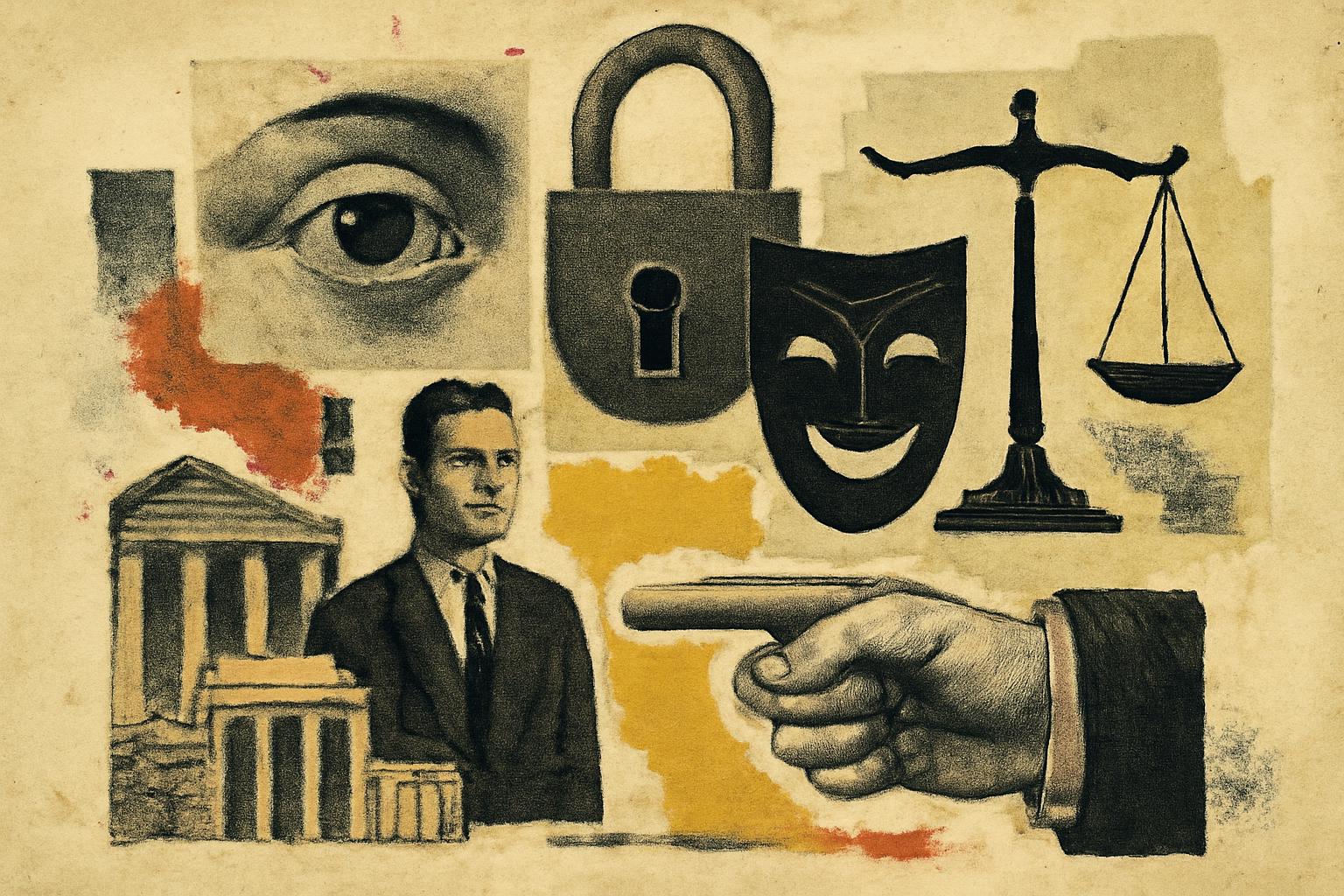Let the record show: the papers lay bare the same old pattern the state always reveals when it polices the powerful. a handful of investigators grill a figure at the center of a global trafficking nightmare, while the public is fed selective snippets and political theater about Clinton, Trump, and high-society intrigue. the result is more state-facing drama, not a clean cure for rights violations or a real test of justice.
from a Hayekian lens, the whole episode screams: the knowledge problem in action. complex networks of crime, influence, and alleged complicity operate in ways no central planner can understand. formal disclosures and grand-jury theatrics are no substitute for the spontaneous order of private information, accountability, and decentralized enforcement. the more the state claims to “control” transparency, the more it quashes the very dispersed knowledge that could actually curb abuses. the remedy isn’t to weaponize secrets for political theater but to shrink the machinery that thrives on secrecy and centralized coercion, and to rely on voluntary, competitive mechanisms of reputation protection, private investigation, and civil society scrutiny.
Nozick would remind us: the rightful function of government is to protect individuals from force, theft, and fraud. trafficking and sexual exploitation are palpable rights violations, and they demand coercive response within a minimal state. but the same Nozickan framework also warns against let-it-run bureaucracy masquerading as virtue. when the state becomes a mediator of leaks, headlines, and prestige politics—especially around figures with power and influence—it ceases to be a neutral protector and becomes a player in the social game. the moral legitimacy of any action taken by the state rests on rights-claim substantiation, not on political currency. if the state uses its power to shield or parade subjects, or to monetize disclosures for leverage, it has abandoned the very principle it purports to defend.
Rational self-interest, as Rand would insist, should compel unity of method: defend rights, not institutions. the Epstein-Maxwell saga shows why you cannot trust a big bureaucracy to single-handedly moralize society while soft-pedaling its own tendencies toward favoritism and selective accountability. the victims’ rights belong to them—not to the state’s public-relations machine. private law, voluntary associations, and civil society networks are far more capable than a bloated apparatus to pursue restitution, enforce non-coercive norms, and discipline those who abuse others. when the state treats disclosure as a political instrument, it betrays the very objective of justice: objective standards applied consistently, not selectively deployed to protect or indict according to headlines.
Key libertarian takeaways you should see in the frame:
Transparency without coercion: the state should not wield secrecy as a weapon or a political cudgel. open inquiry is healthy only if it’s conducted under consistent, rights-respecting procedures, not as part of a public-relations machine for powerful actors.
Minimal state, maximal accountability: the core problem is not “too little disclosure” per se but the entanglement of state power with elite influence. the cure is to shrink the state’s coercive reach and to insist on robust private oversight, competitive journalism, and independent civil-society checks that aren’t subordinate to factional interests.
Rights-first, not reputation-first: trafficking crimes are serious precisely because they violate physical autonomy and sold integrity of persons. the legitimate response is to protect victims and punish perpetrators, using due process—not to secure a favorable narrative for this or that political faction.
Private institutions over state spectacle: private investigators, civil suits, whistleblower protections, and voluntary associations can—and should—play a larger role in exposing wrongdoing without weaponizing the apparatus of the state.
Practical Libertarian recommendations (short form):
Sunset the grand-jury/indictment regime where possible and replace with open, limited, rights-centered processes that do not grant prosecutors license to wield secrecy as leverage over public perception.
De-emphasize the central-state broadcast of investigations; empower independent oversight bodies with real teeth (clear limits, sunset clauses, transparent budgets) and strong protections for whistleblowers.
Expand private enforcement options for victims: civil litigation, private security and investigative firms, reputational capital mechanisms, and non-profit advocacy that operate independently of political clocks and party lines.
Rebalance the incentives around high-profile cases: reduce the ability of political actors to extract leverage from ongoing investigations; insist on uniform standards of treatment for all defendants and witnesses, regardless of status.
Narrow the scope of federal intervention in non-violent or non-coercive harms; emphasize protecting individuals from force, theft, and fraud, while reducing the incentives for elites to use the state as a shield or a stage for grand narratives.
In short: these documents expose the same combustible mix—power, secrecy, and selective accountability—that liberty transcendently condemns. if we are serious about justice for victims and about ending the corrosive alliance between state power and elite privilege, the path forward is not more disclosures choreographed for political effect, but less state, more private, and a relentless commitment to protecting individual rights over the theater of public opinion. the state is not our savior; it is the instrument that must be rolled back, restrained, and rendered powerless to interfere with private rights and private justice.
